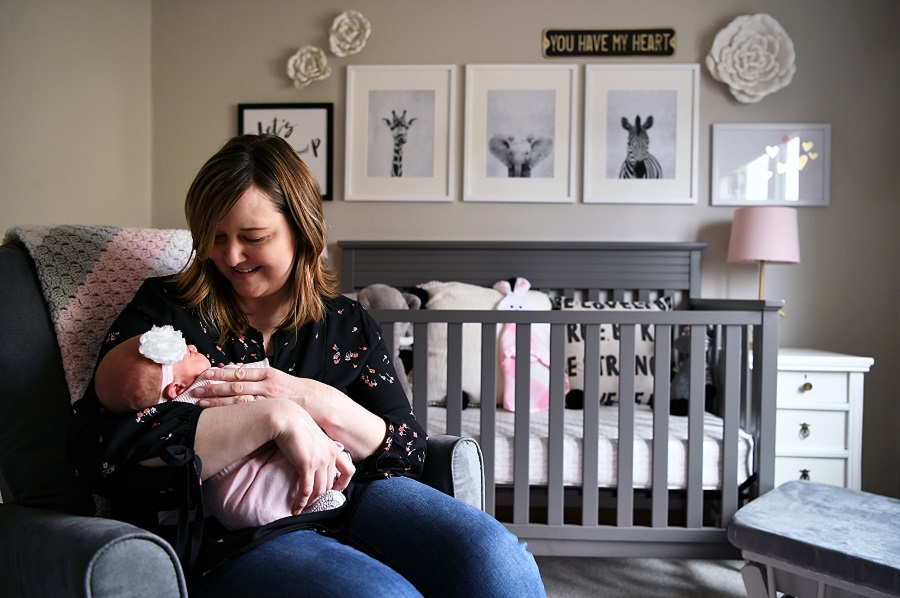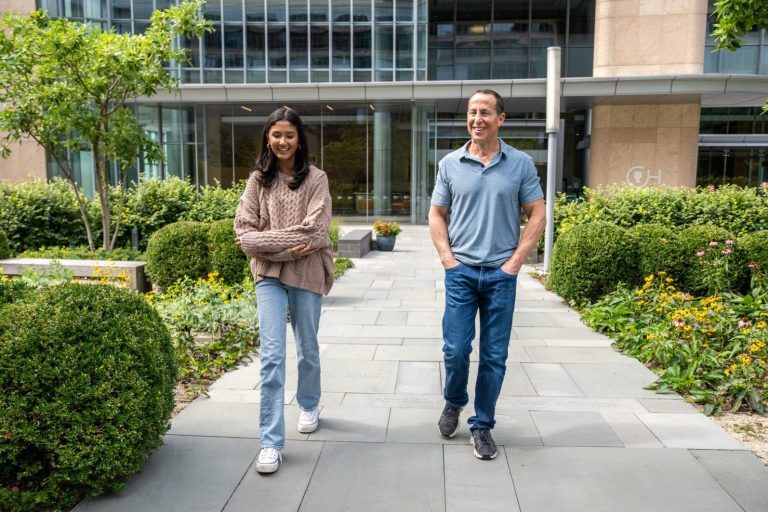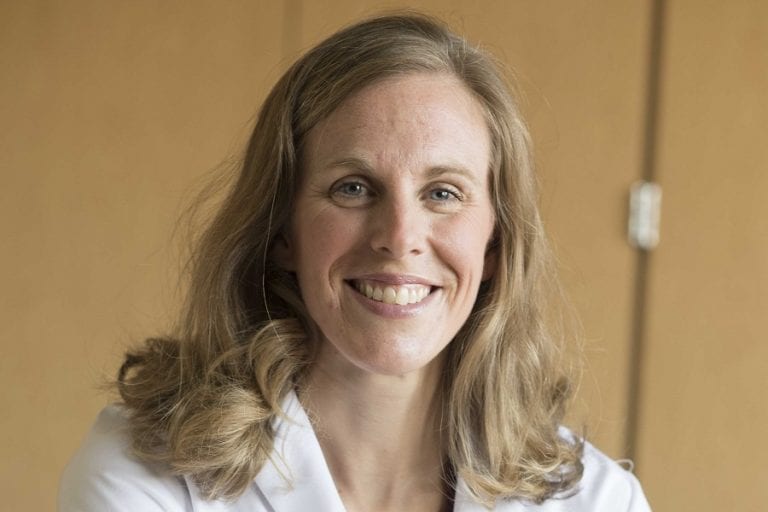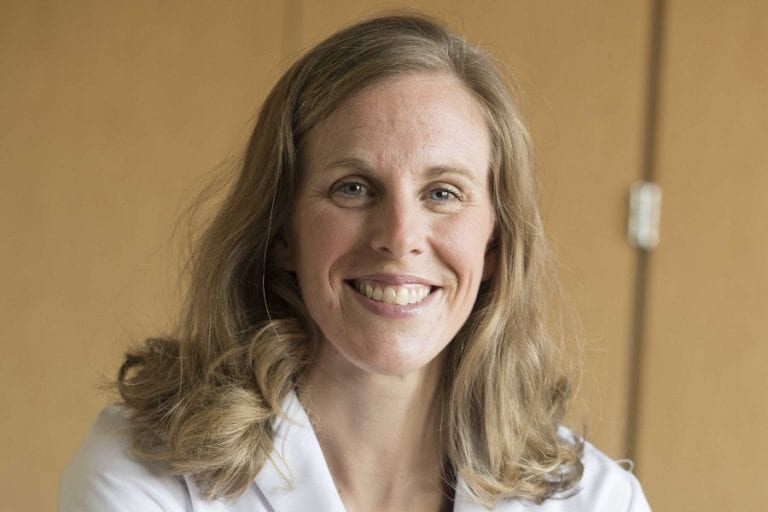On a snow-thawing day in Minnesota, osteosarcoma survivor Anna (35) wrote a beaming message on her Facebook page: "Mila Alice was born March 2, bright and early! She is definitely our sunshine!" Wrapped in a warm, gray polka-dot blanket, her tiny newborn spent a couple of days in the neonatal intensive care unit (NICU) after being born premature at 35 weeks.
"My greatest triumph post-cancer is having a sweet baby," said Anna. "Infertility was an unknown... we talked about adoption, but there's just something about having your own that's such a gift." Anna describes 6-pound, 19-inch Mila as their little miracle.
After a year of intense, toxic osteosarcoma treatment and tumor-removal surgery when she was 16 years old, Anna remembers doctors telling her three things: (1) She could be infertile due to treatment. (2) She must see a cardiologist if she ever became pregnant. (3) Chemotherapy could have affected her hearing.
"I think the infertility piece was a really big fear of mine," said Anna. "It's just crazy because that's one of those fears I've had for probably 16 years." After a positive pregnancy test, she took five more - all positive.
Though Anna and her husband Dan were ecstatic about having a baby, Mila's early entrance into the world required heart-wrenching decision-making for the couple.
Because of past chemotherapy, Anna developed heart conditions that, when added to pregnancy, could have led to life-threatening heart failure. Throughout her pregnancy, she saw a high-risk doctor, who kept a close eye on her. Overall, the pregnancy went fairly smoothly for Anna until she hit 34 weeks. After being admitted to the hospital with heart issues, her doctors did not want her to go home - they wanted to induce labor right away, concerned that her heart might fail any moment.
"I was really nervous... I did not feel comfortable with it," she said. The risks of being born too early include hearing and vision impairment, breathing complications and more. Having gone through potentially fatal health conditions herself, Anna did not want her first child to endure anything similar.
She and Dan waited one more day to see a heart specialist, who ultimately said she thought Anna's heart could withstand taking the pregnancy to term. But about a week later, Anna developed preeclampsia, a condition that if not treated quickly can lead to liver or renal failure and even cause more heart problems. They decided to induce, and fortunately, their daughter Mila spent only two days in the NICU - healthy, happy and waking every three hours.
Though it was a tumultuous experience, Anna feels blessed that having a baby was even a possibility for her. "Each month during that pregnancy was such a milestone in itself," she said. "I still almost can't believe it - I still stare at her and think, "Is this for real?"
Though oncologists told Anna about potential heart problems, infertility and hearing late effects, they did not mention the constant sting of anxiety she would carry with her to this day.
Of all the health issues she's endured post-cancer, she said it's her biggest struggle.
"I remember walking out of the hospital after my last chemo - it's probably scarier than after you first start chemo because it's like, now what? This has been my life; they've been tracking me and keeping notes on everything going on with my body all the time, and now I'm just done with it all," she said.
Even today, aches and pains trigger an anxious thought. "I've heard the word cancer - one of my worst fears happened. Now it provokes things like, 'What if my child gets cancer?'" she said.
Anna feels like she has had three lives: one before cancer, one during cancer and one after treatment. "I had to figure out who my after-chemo person was going to be," she said. "But day after day, you start to feel more like yourself; some of the icky memories start to fade a little bit more."
To cope with anxiety, she tries to think positively. "I think about how I'm still here. I think about people who haven't survived, and I want to live my best life for them," she said.
For future childhood cancer survivors, Anna hopes that when they're done with treatment, they can take the time to really enjoy life.
"I wasted too much time worrying. I'm 18 years out of it and I'm just fine. I wish that worry hadn't taken away from a lot of the joy I could have had," she said.
Today, Anna is finding joy in the quietness of having a newborn. In the next years of Mila's life, Anna is most excited to watch her grow up and see who her daughter will become. Although she still deals with the consequences of her cancer and treatment, she feels it all contributed to the life she has today.
"I don't always remember my cancer experience negatively, even though it sounds weird to say that... it was definitely a negative thing in my life, but when I look back now I see the positives that came from it," she said. "I can see the people in my life and God and how they helped me through it. When I look back now I just feel so thankful and amazed at how God worked that out."
Written by Anna Schetinski
Anna was diagnosed with osteosarcoma when she was 16 years old. Now 18 years past cancer treatment, Anna says she chooses to share her story because of the potential it has to help others who struggle. For more about Anna, read her pieces Because I Was You and To the Kid Who is Going Through What I Went Through.




